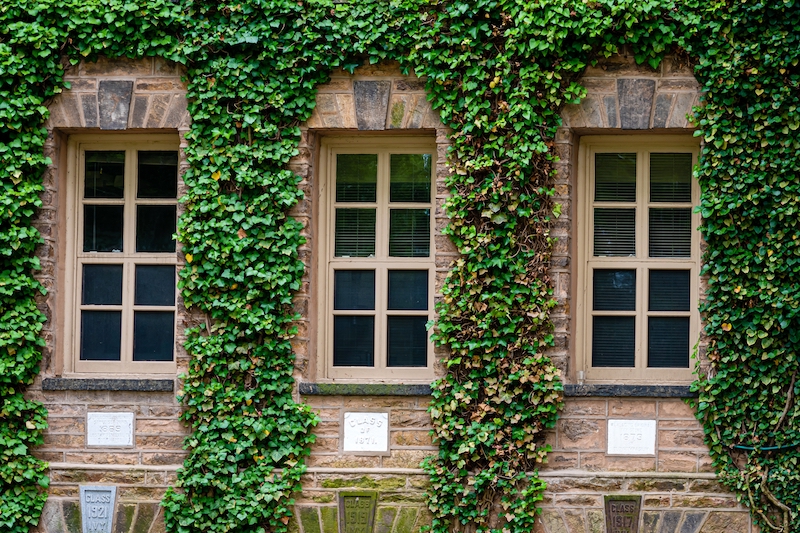Harvard’s in the Ivy League, right? What about Stanford? MIT’s in Boston too, so it’s got to be right? What about Dartmouth? Is Duke an Ivy League school? Is Columbia? Is Barnard?
We hear these questions a lot, from students and parents, who want to attend the best colleges, and know that the Ivy League means the best. This naturally leads to some confusion, as every school which achieves some notoriety becomes associated with the Ivy League. In this article, therefore, we’ll break down what the Ivy League is, what Ivy+ schools are, and whether any of this matters to your college applications.
We’ve written before about finding the best college for you, and this is part of that. This article is part of our ongoing work to help students better understand college offerings, and in so doing find the school that’s right for them. Let’s get started!
What is the Ivy League Exactly?
The Ivy League is a collegiate athletic conference, similar to the Big 10 or Pac-12. It was founded officially in 1945, following the end of WWII, when the member schools reached an official agreement on athletic standards, recruiting, and academic standards for athletes. The eight founding schools (and sole members to this day) are:
- Brown
- Columbia
- Cornell
- Dartmouth
- Harvard
- Princeton
- UPenn
- Yale
The core tenet of the league is that they are academic institutions first, thus athletes at Ivy League schools are never offered athletic scholarships, despite all of the schools being in NCAA division I. These schools do recruit athletes, but the only aid these students get is need-based aid, as with the rest of the student body.
These schools did not begin associating with this compact, and were previously linked culturally, due to their close age and geographic proximity. All of these schools are close together, and all are quite old. Indeed, Harvard and Yale have been rivals for centuries at this point.
The official Ivy League as a term to designate certain schools is new. The term itself does not denote academic prestige, at least originally. Instead, a number of prestigious schools which already had athletic rivalries formed their own athletic group, and from this the name was born.
What is an Ivy+ School?
While the Ivy League did begin as an athletic association, it is far better known in modern parlance as being a group of the best colleges in the US. This does make sense; while collegiate sports are incredibly popular, the first thing you think of when hearing the terms Harvard or Yale isn’t their football team, but rather their academic prowess.
Thus has the term Ivy League transformed into one which simply is used as shorthand for a good school. Of course, not every great college is in an athletic league with the rest of the Ivies, and thus the term Ivy+ was born.
This term simply refers to schools which are generally seen in the same academic tier as the Ivy League, though they do not compete with them athletically. The schools that count as Ivy+ also vary somewhat; this is not a set organization, but more of a general sentiment of which schools are the best. The following universities are generally considered Ivy+:
- Duke
- MIT
- Stanford
- UChicago
The Little Ivies
This is an associated term, which is used to refer to the top liberal arts schools. There are far more of these, since the schools are smaller, and the association looser. This is not an official designation, but an informal association. While the schools are quite good, and most do compete against each other academically and athletically, they are not officially associated with the broader Ivy League, except through some shared culture.
The term Public Ivies is sometimes used in a similar context, and refers to some of the nation’s top public universities. Again, this is not an official designation, but is used to denote public universities which are perceived to be in the same academic tier as the Ivy League.
Is the Ivy League Right for You?
All of the schools in the Ivy League are quite good academically, though that does not make them the same. There is a diversity in what each school offers, and which one is right for you varies based on what you happen to be looking for in a university.
We also want to note that not all great universities are in the Ivy League, and just because a school is in the Ivy League does not mean it is the right fit for you. Fit is a key component of admissions success, as admissions officers want to make sure the students that they are admitting are equipped to succeed in their school.
Also note that when you are applying to universities, you should not make a point of a school being in the Ivy League in your essays. These schools know they are great, they want to know what makes them the best fit for you specifically. If all you can say is that they have a famous name, and that that appeals to you, they will likely doubt your commitment to the school. Instead, you should focus on what makes each school unique, and how those unique attributes will enable you to achieve success.
Final Thoughts
Brand names do matter in college, not for the quality of education you will achieve, but because a famous name wields a certain power of its own, born of prestige and recognition. You can get an amazing education at hundreds of universities, but there is only one Harvard. In this light, the allure of the Ivy League makes sense, and the question as to whether any great school is a member.
We hope that this article has clarified the matter; we don’t mind answering questions, and enjoy helping you learn more about colleges. To learn more about the Ivy League schools, or other top colleges, see our college guides. If you have specific questions you want answered, or want to hear how we can help you find the perfect college fit, schedule a free consultation today. We’ve helped hundreds of students find the best college for them, and are always happy to hear from you.








